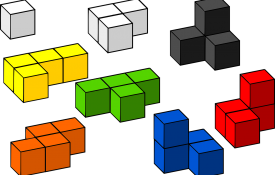-
New Research From Psychological Science
Read about the latest research published in Psychological Science: How You Get There From Here: Interaction of Visual Landmarks and Path Integration in Human Navigation Mintao Zhao and William H. Warren Humans use both a Visit Page
-
Treating Trauma With ‘Tetris’
Pacific Standard: Memory reconsolidation—the method that involves re-exposing a patient to a past memory and then updating it while in this allegedly malleable state—has potentially major implications for people who suffer from PTSD flashbacks. But proposed Visit Page
-

Intrusiveness of Old Emotional Memories Can Be Reduced by Computer Game Play Procedure
Playing a visually-demanding computer game after reactivating traumatic memories may eventually impede those memories from reoccuring, a study shows. Visit Page
-
Longer Acquaintance Levels the Romantic Playing Field
Partners who become romantically involved soon after meeting tend to be more similar in physical attractiveness than partners who get together after knowing each other for a while, according to new findings published in Psychological Visit Page
-
Holding on to the Blues: Depressed Individuals May Fail to Decrease Sadness
Given that depression is characterized by intense and frequent negative feelings, like sadness, it might seem logical to develop interventions that target those negative feelings. But new research suggests that even when depressed people have Visit Page
-
The Shakespeare Algorithm
The New Yorker: In 1727, a writer and editor named Lewis Theobald was preparing to unveil “Double Falsehood,” a tragicomedy that he said was based on manuscripts of a lost play by Shakespeare. “The good Visit Page

